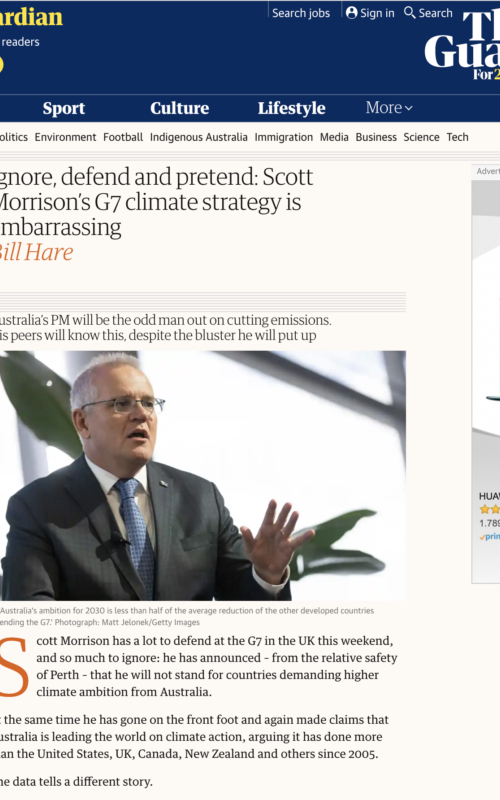Media coverage
Share

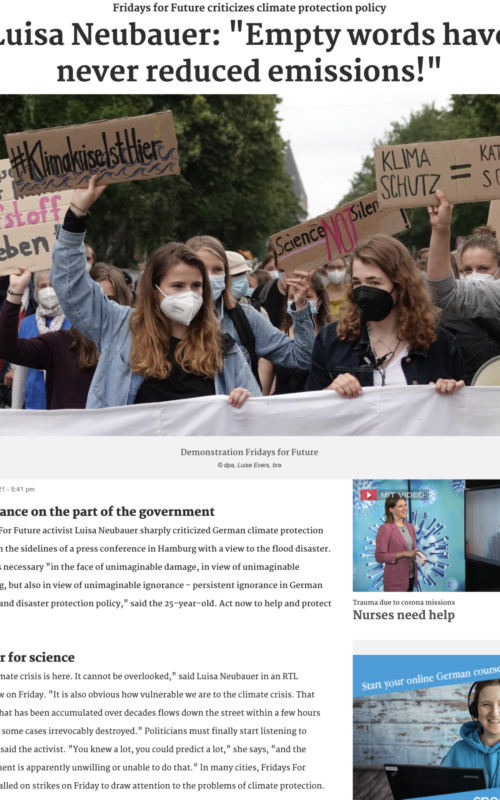
Dr. Carl-Friedrich Schleussner comments on the heavy rain incidents experienced the past week in Germany, and how new research shows that disaster and climate protection must change.

CEO, Bill Hare warns that "sooner or later" the lack of action on climate change and issues with the Great Barrier Reef will come back to haunt the Morrison Government.

Dr Fahad Saeed, warns the BBC about record-breaking heatwaves in Japan due to climate change.
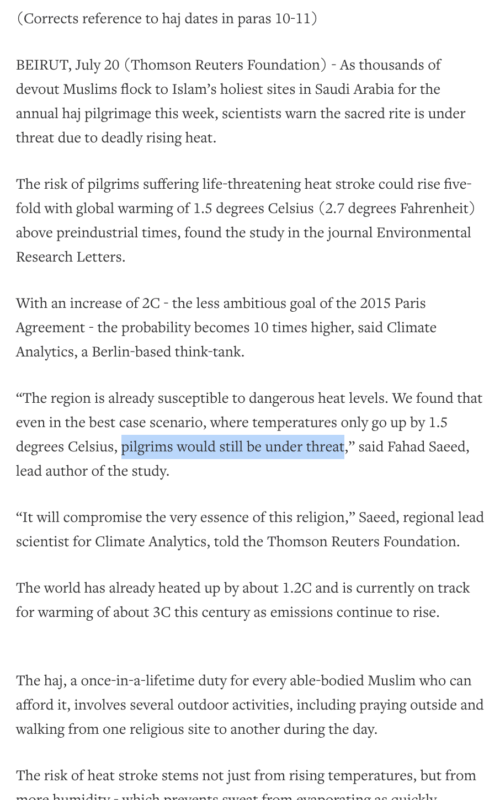
Dr Fahad Saeed, regional lead scientists comments on the dangerous heat levels in Saudi Arabia, threatening and compromising the sacred rite.
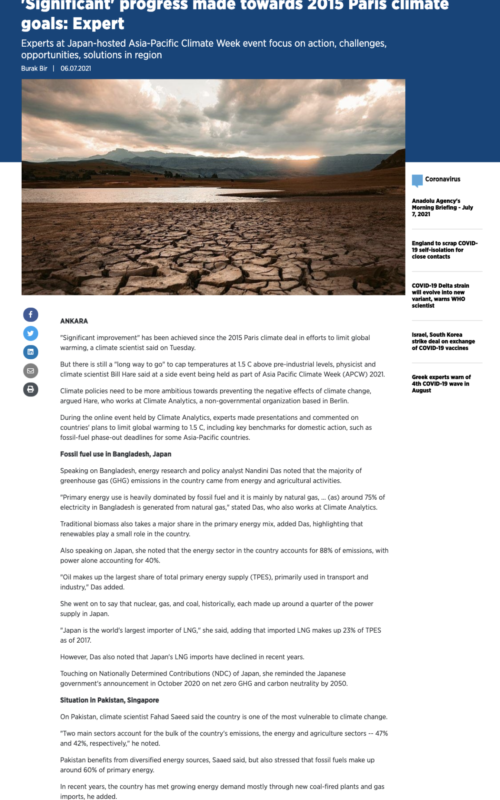
Anadolu Agency coverage of our webinar, taking place as part of Asia Pacific Climate Week (APCW) 2021.
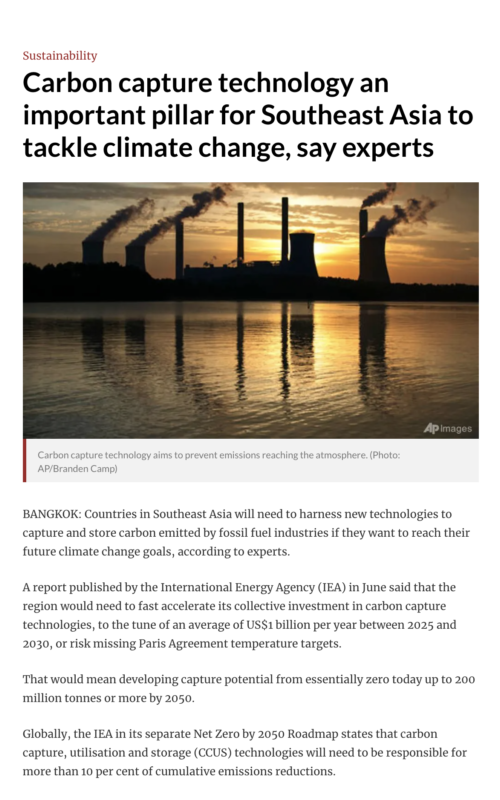
Bill Hare, CEO of Climate Analytics, highlights the economic and environmental limitations of CCUS technologies and emphasises that focus in Southeast Asia should instead be on switching from coal to renewables.

Claire Fyson comments on G7 climate action on the back of our new analysis published ahead of the summit.


